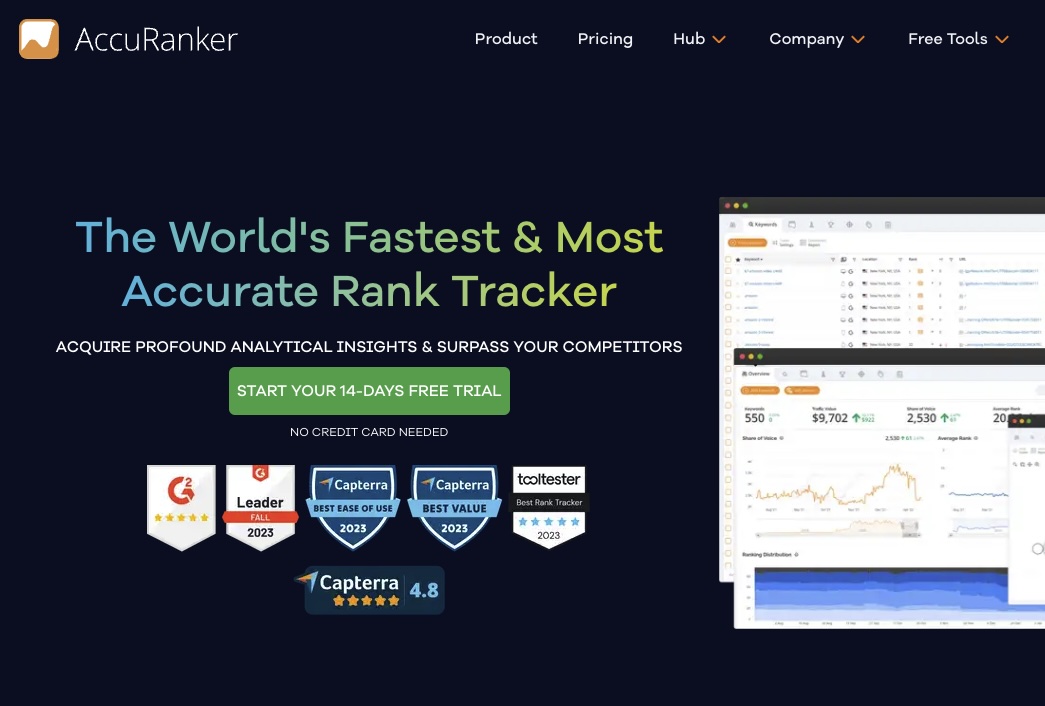To get started in elevating one’s SERP, it is crucial that one has learned the rapidly evolving field of Search Engine Results Pages (SERP). The below write-up examines the SERP ranking basis and history of position. It emphasizes diversified tools and approaches that have been used in connection to digital marketing.
The Emergence of SERP Ranking History
One of the best pieces of evidence that there have been changes in SEO is the involvement of search engine result page ranking history. Since the beginning of search engines, especially after Google’s prominence in 1998, Suddenly, tracking and understanding the SERP rankings have been a center stage thing for marketers and website owners both. Such historical data supplies inestimable information about the appearance of sites in the search rankings through the course of years, thereby steering strategic decision-making.
Key Milestones in SERP Ranking History
| Year | Event | Description |
| 1998 | Google Launches | The business of Google encompassed the search engine market and it changed the way information was sought online. Its smooth algorithms quickly earned users worldwide a repute for being the number one search tool option. By the appearance of Google, SERP positions got more and more important for seo specialists and site owners. |
| 2000 | Introduction of Google AdWords | Google AdWords, now called Google Ads, entered the scene with the arrival of a new generation of online advertising. This PPC bidding platform gives advertisers an opportunity to bid on keywords in order to display their ads prominently on Google’s search result pages. AdWords, additionally brought in a targeted visibility but also pointed out the keyword prioritizing in the organic search algorithm ranking. |
| 2011 | Google Panda Update | Panda, a Google update that took place in was the turning point in how search engines calculated page quality and pertinence. The intention of this update was to demote undesirable sites with insubstantial or plagiarized content while lifting up good quality sites which earned the best rankings. Accordingly, webmasters had to flashlight on the creation of quality, non-plagiarized articles if they wished to either preserve or raise their SERP rankings. |
| 2012 | Google Penguin Update | Based on the realization brought by the Panda, Google implemented the Penguin update to prevent the development of spammy link-building schemes and techniques. Penguin raises the bars for penalizing sites that stuff keywords or run link schemes. They can become less visible in search results or even be removed from them. This revised ethics code tagged the significance of ethical SEO modalities and the quality of inbound links in determining the ranking in SERP. |
The Significance of Tracking SERP Ranking History
Tracking SERP ranking history offers several benefits for marketers and website owners:
- Performance Evaluation: By analyzing historical SERP data, businesses can assess their website’s performance in search engine rankings over time. This evaluation helps identify trends, fluctuations, and areas for improvement in SEO strategies.
- Competitive Analysis: Monitoring competitors’ SERP rankings provides valuable insights into their SEO tactics and performance. Understanding competitors’ strengths and weaknesses can inform strategic decision-making and help businesses differentiate themselves in the search results.
- Strategic Planning: Historical SERP data serves as a foundation for developing future SEO strategies. By identifying successful tactics and trends, businesses can refine their approaches to improve SERP rankings and drive organic traffic to their websites.
- Algorithmic Changes Adaptation: Search engine algorithms are constantly evolving, impacting SERP rankings. By tracking SERP ranking history, businesses can adapt to algorithmic changes promptly, ensuring their websites remain visible and competitive in search results.
AccuRanker SERP History Checker

AccuRanker, a prominent player in the realm of Search Engine Optimization (SEO) tools, offers a powerful feature known as the SERP history checker. This tool has garnered significant acclaim among SEO professionals for its ability to track the Search Engine Results Page (SERP) ranking history for specific keywords across various timeframes. Let’s delve into the key features and functionalities of AccuRanker’s SERP history checker:
- Daily Updates: AccuRanker ensures that users receive timely and relevant data by updating SERP position history on a daily basis. This frequent updating mechanism allows users to stay abreast of any fluctuations or trends in their keyword rankings, empowering them to make informed decisions regarding their SEO strategies.
- Competitor Analysis: One of the standout features of AccuRanker’s SERP history checker is its capability to facilitate comprehensive competitor analysis. Users can effortlessly compare their own SERP ranking history with that of their competitors, gaining valuable insights into areas of strength and areas for improvement. By benchmarking their performance against competitors, users can fine-tune their SEO tactics to gain a competitive edge in the digital landscape.
- Geographic Tracking: AccuRanker goes a step further by offering geographic tracking functionality, allowing users to monitor SERP position history across different geographical locations. This feature is particularly beneficial for businesses targeting specific regions or operating in multiple geographic markets. By analyzing how their keyword rankings vary across various locations, users can tailor their SEO strategies to better cater to the preferences and search behaviors of their target audience in each region.
SERP Features History: Ahrefs
Ahrefs is another significant player in the SEO landscape, known for its extensive database and tools. The SERP features history component of Ahrefs provides a historical view of the search features (like snippets, images, news boxes) that appear for specific queries.
Key Features of Ahrefs’ SERP Features History:
- Strategy Optimization: Understanding which SERP features dominate for specific queries is essential for optimizing content strategies. By analyzing the historical data provided by Ahrefs, users can gain insights into the types of content that perform well for particular search intents. This information allows them to tailor their content strategies accordingly, aiming to target and optimize for the most prevalent SERP features.
- Visibility Insights: Ahrefs’ SERP Features History provides valuable visibility insights by showcasing how frequently a website appears in special search features over time. This feature enables users to track the performance of their website’s content in SERP features, identifying trends and patterns in visibility fluctuations. By monitoring changes in visibility over time, users can assess the effectiveness of their SEO efforts and make data-driven decisions to enhance their online presence.
- Competitor Benchmarking: Another noteworthy aspect of Ahrefs’ SERP Features History is its capability to facilitate competitor benchmarking. Users can compare their website’s performance in terms of SERP feature appearances with that of their competitors. This comparative analysis enables users to identify strengths, weaknesses, and opportunities for improvement relative to their competitors. By benchmarking against competitors, users can gain valuable insights into effective strategies and tactics employed within their niche, informing their own SEO initiatives.
Impact of SERP Position History on SEO Strategies

Search Engine Results Page (SERP) position history holds significant importance in the realm of Search Engine Optimization (SEO). By analyzing the historical data of SERP rankings, SEO practitioners can gain valuable insights into the effectiveness of their strategies and adapt them to achieve better results. Here’s a detailed exploration of how SERP position history impacts SEO strategies:
Algorithm Update Analysis
Understanding the impact of search engine algorithm updates is crucial for maintaining and improving SERP rankings. By analyzing SERP position history before and after major updates, SEO professionals can discern patterns and adjust their strategies accordingly. This analysis involves tracking changes in ranking positions, identifying fluctuations, and determining the factors that contribute to shifts in SERP rankings.
| Algorithm Update | Impact on SERP Positions | Adjustments to SEO Strategy |
| Google Panda | Decrease in rankings for low-quality content; emphasis on quality and relevance. | Content optimization for quality and relevance; removal of thin or duplicate content. |
| Google Penguin | Penalty for manipulative link-building practices; focus on natural, high-quality backlinks. | Audit and disavowal of toxic backlinks; emphasis on organic link-building tactics. |
| Google BERT | Improved understanding of search queries; prioritization of natural language and context. | Optimization for natural language; creation of content that addresses user intent comprehensively. |
Content Strategy Refinement
SERP position history serves as a valuable tool for refining content strategies to align with evolving search engine trends. By analyzing historical data, SEO professionals can identify the types of content that consistently rank well and the keywords associated with them. This analysis enables them to create and optimize content that resonates with their target audience and meets search engine criteria.
- Utilizing keyword research tools to identify high-performing keywords and topics.
- Analyzing competitor content that ranks consistently high on SERPs and identifying opportunities for improvement.
- Incorporating user-generated content and feedback to enhance relevance and engagement.
- Implementing structured data markup to enhance the visibility and appearance of content on SERPs.
Backlink Strategy
The historical analysis of SERP positions plays a crucial role in shaping backlink strategies. Backlinks are essential for improving domain authority and enhancing SERP rankings. By analyzing SERP position history, SEO professionals can identify the types of backlinks that contribute to higher rankings and the websites that consistently link to top-ranking pages. This analysis informs the development of a targeted backlink acquisition strategy that focuses on acquiring high-quality, relevant backlinks from authoritative sources.
- Conducting a backlink audit to identify existing backlinks and assess their quality and relevance.
- Leveraging outreach strategies to build relationships with relevant websites and acquire natural backlinks.
- Monitoring competitor backlink profiles and identifying opportunities for obtaining similar or better-quality backlinks.
- Diversifying anchor text and link sources to ensure a natural and organic backlink profile.
Conclusion
SERP ranking history and SERP position history are vital components in the realm of SEO. Tools like AccuRanker and Ahrefs provide indispensable insights into these aspects, empowering businesses and marketers to craft more effective and targeted SEO strategies. By leveraging the power of historical data, one can significantly enhance their online visibility and stay ahead in the competitive digital landscape.
FAQ
A: It’s advisable to check your SERP position history regularly, preferably monthly, to stay updated with any significant changes.
A: While it can’t predict future rankings with certainty, analyzing SERP position history helps in understanding trends that can inform future strategies.
A: Yes, SERP ranking history can vary between mobile and desktop, as search engines often use different algorithms for each.
A: By tracking competitors’ SERP ranking history, you can gain insights into their SEO strategies and identify areas where you can improve.
A: There are free tools available, but they may offer limited features compared to premium tools like AccuRanker and Ahrefs.
